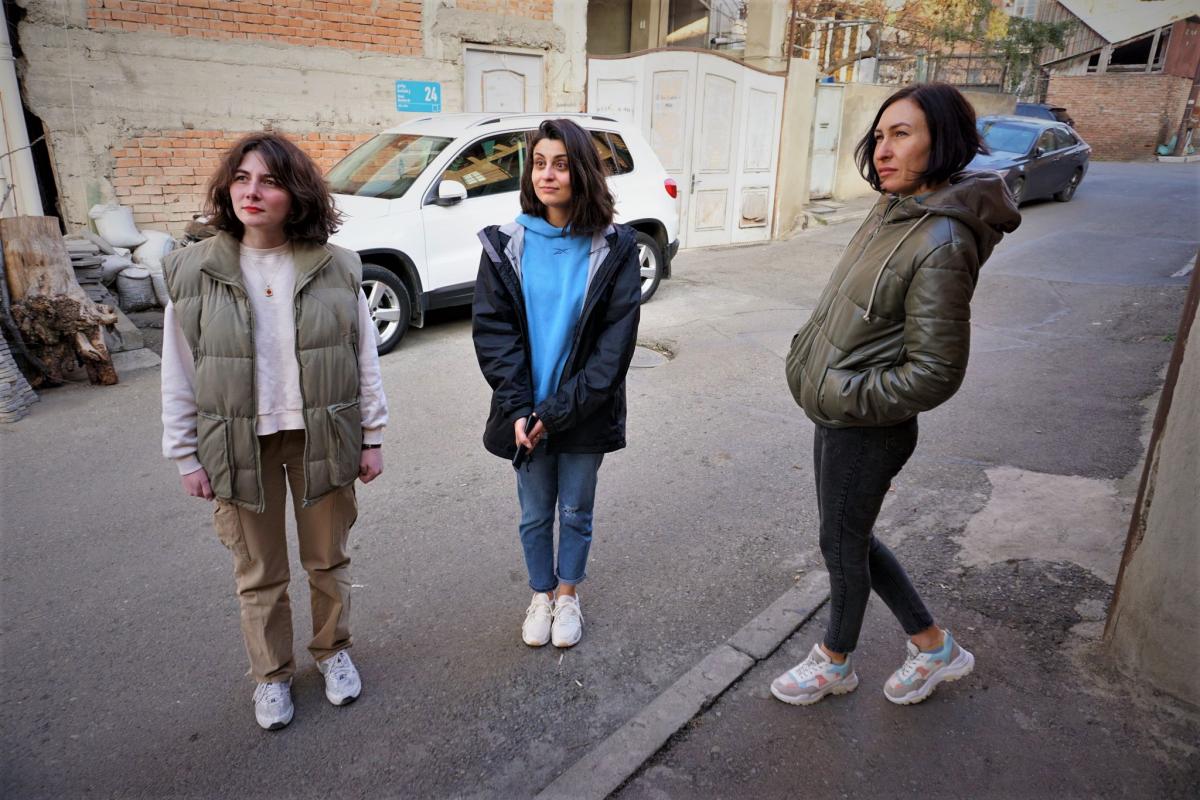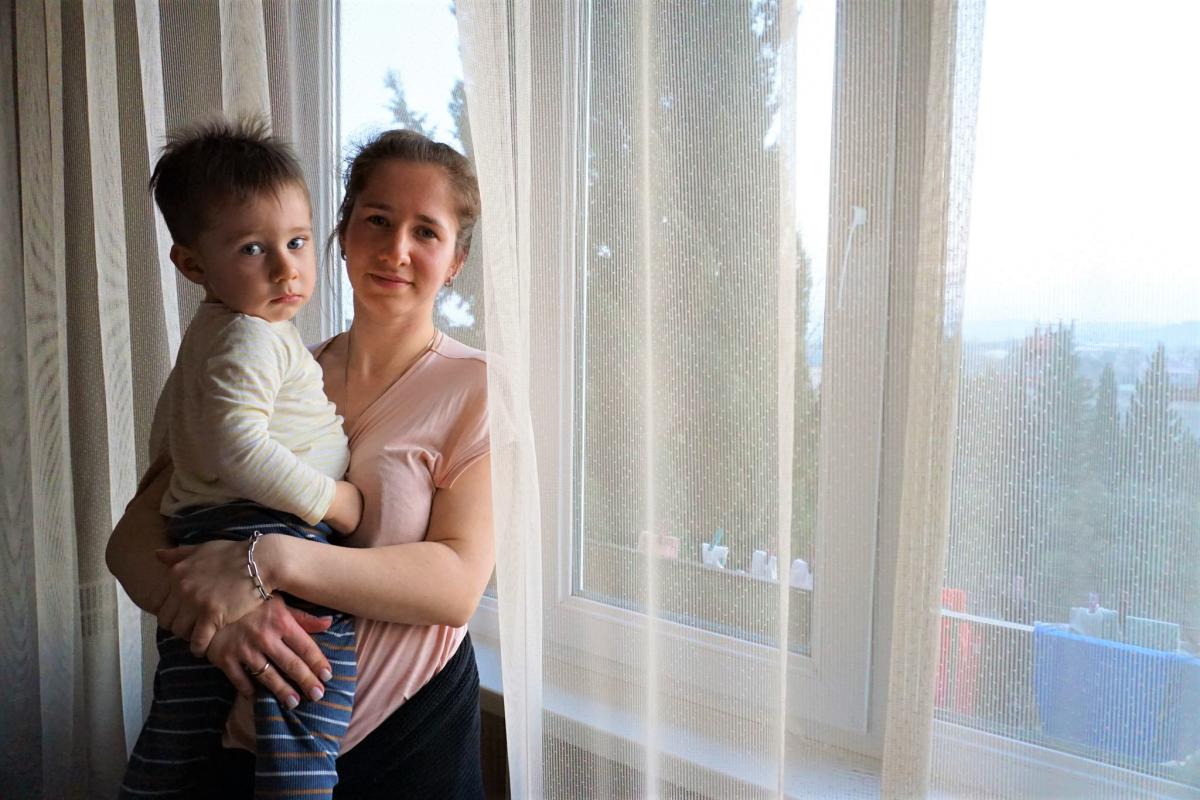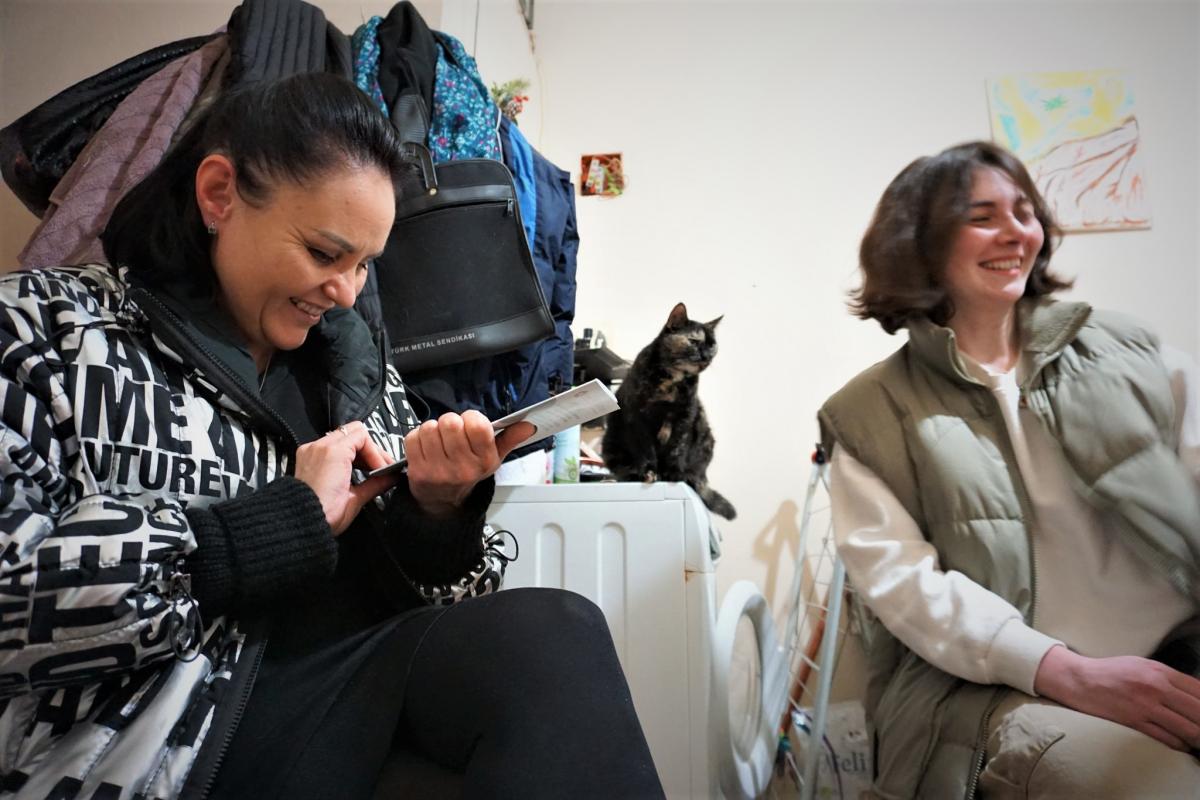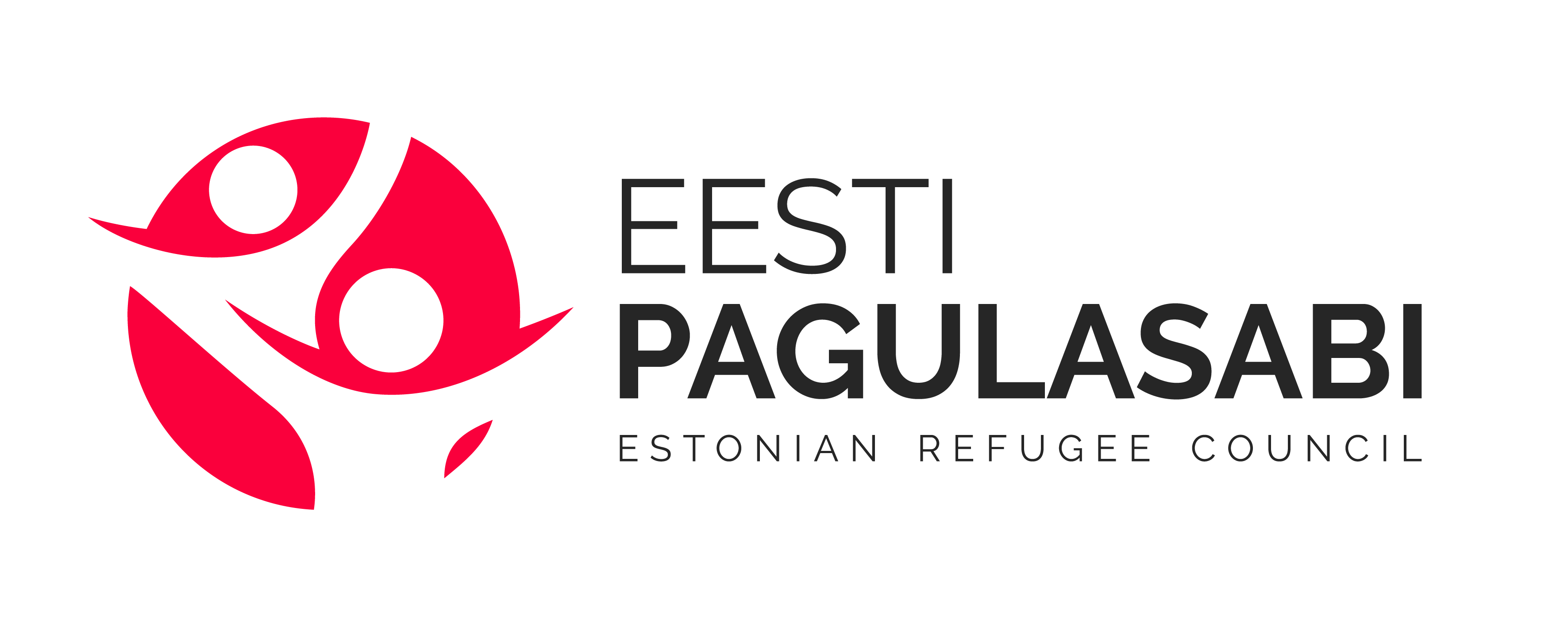
Ukrainian refugees arriving in Georgia are often in a vulnerable state
Estonian Refugee Council has been operating in Georgia since 2021, but until now, our focus have been internal refugees from South-Ossetia. Last year hundreds of thousands of refugees from Ukraine passed through Georgia. Permanently 27 000 (January 2023) have stayed there. On our monitoring visit to Georgia it was confirmed, that many of them are living in very difficult conditions. In many cases, Georgia was their only escape route when war went over East-Ukraine and it would have been too dangerous to move to west. Many of them were in a state of internal refugee before and therefore in a very vulnerable state. In collaboration with our long term partner MMRH and new copartner CARE Caucasus we support 250 most vulnerable households with cash-based assistance. Subsidy for on household is about 370€.
In January we met with many families in Tibilis who got subsidy from us and who have gone through a long journey to reach a safe place – mostly through aggressor country. Providing humanitarian aid in Georgia was supported by Estonian Ministry of Foreign Affairs, to whom we are a strategic partner in the field of humanitarian aid.
Lena's story

Lena (on the right) and coordinators of ERC partner organization Ana and Salome, who once had to relocate from South-Ossetia due to Russian occupation, but who now help Ukrainian refugees.
Lena and her two kids, son and daughter are from Herson. They made to Georgia on 20th of June in 2022 through Krimm. “It was a terrible journey, we saw everything that has happened”, tells Lena in a basement of a cheap looking hotel in Tibilis. As there are many men escaped to Georgia from Russian mobilization, rent and grocery prices have raised significantly and it is very difficult to find a place to live in a reasonable price. Lena pays 400€ for a room. Subsidy given from refugee aid mostly goes to rent and essential food. “We can`t go back to Herson, because there is still very unstable situation”, says Lena and adds, that her mother is still there, but can´t contact her because of interrupted mobile coverage. “I don´t even know if my home is still there”, sighs Lena. And rushes to work – woman has still the opportunity to do remote work in the administration of a Ukrainian university. This helps her and her family to make ends meet.
Dasha's ja Gabriel's story

Dasha and Gabriel in a suburb apartment of Tibilis.
Veterinarian Dasha and her son Gabriel are from Zhytomyr. Dasha´s husband is a Georgian who in last winter waited for a Ukrainian residence permit but which he didn´t get because of the war. In February 2022 russians attacked tank factory near Zhytomyr, bombed the airfield and school. “Children´s beds were under the living room windows, it would have been unreal to live there, “ says Dasha, who at first planned to evacuate with her family only for few weeks. Due to her husband´s nationality the only opportunity was Georgia. “MMRH, your partner organization here in Georgia sent us a text, that there is a chance to get financial support. At first we thought, that this can´t be real, it´s a scam, “ smiles Dasha, “but all food supplies, for example milk, are very expensive for us. Besides, we needed medication for child and I had gone though an operation”. So the woman decided to reply the text and soon the financial support was transferred to her account. Every extra income is necessary according to woman, because her husband´s salary can´t cover the expenses related to health. Her parents, grandparents, dog and three cats are still in Ukraine, dad will soon go to the front due to the mobilization. They are being in touch with their family as much as possible, bud Dasha has no plan of going back at the moment. “Because of child. There is not safe.” she says.
Tanya's story

Tanya and MMRH coordinator Ana in Tanya´s suburb one room apartment (temporary). Cat in the middle belongs to another Ukrainian family who at the moment lives in a car and is looking for a place to live.
Tanya and her 15-year old sone left Irpin on the 5th of March and went to Poland first. “The main thing was to get away. The attacks were strong and horrible,” says Tanya. In Poland they randomly met Tanya´s colleagues daughter and her husband who had contacts in Georgia. As Tanya had no idea what to do or where to go, she decided to go to Georgia with her son. “Before Irpin we lived in Donbass. This was not the first time for me and my son to lose our home. Or family, “ says Tanya, but adds, that all this has made her independent and she will manage. Tanya and her son live in a tiny room of an apartment building in the suburb of Tibilis – which most likely was a room of a small shop one day. In spite of the poor conditions, Tanya has two cats and one hamster there. “They belong to another Ukrainian family, who at the moment is living in a car, looking for a proper place to live” she explains.
When Tanya and her son made to Tibilis, she found herself a job in two restaurants, but she hardly managed with the salary she got and it was very hard working in two places. Now Tanya works in one of the schools of Tibilis, teaching Ukrainian to refugees. The family wants to save up as much as possible to start a new life in one of the European countries where there are more possibilities for her son. “In the end, it doesn´t matter how good conditions you live in, if you can´t be in your homeland,” says Tanya and as Lena, she doesn´t know wheter her home is still there.
You can support us on our donations page.
